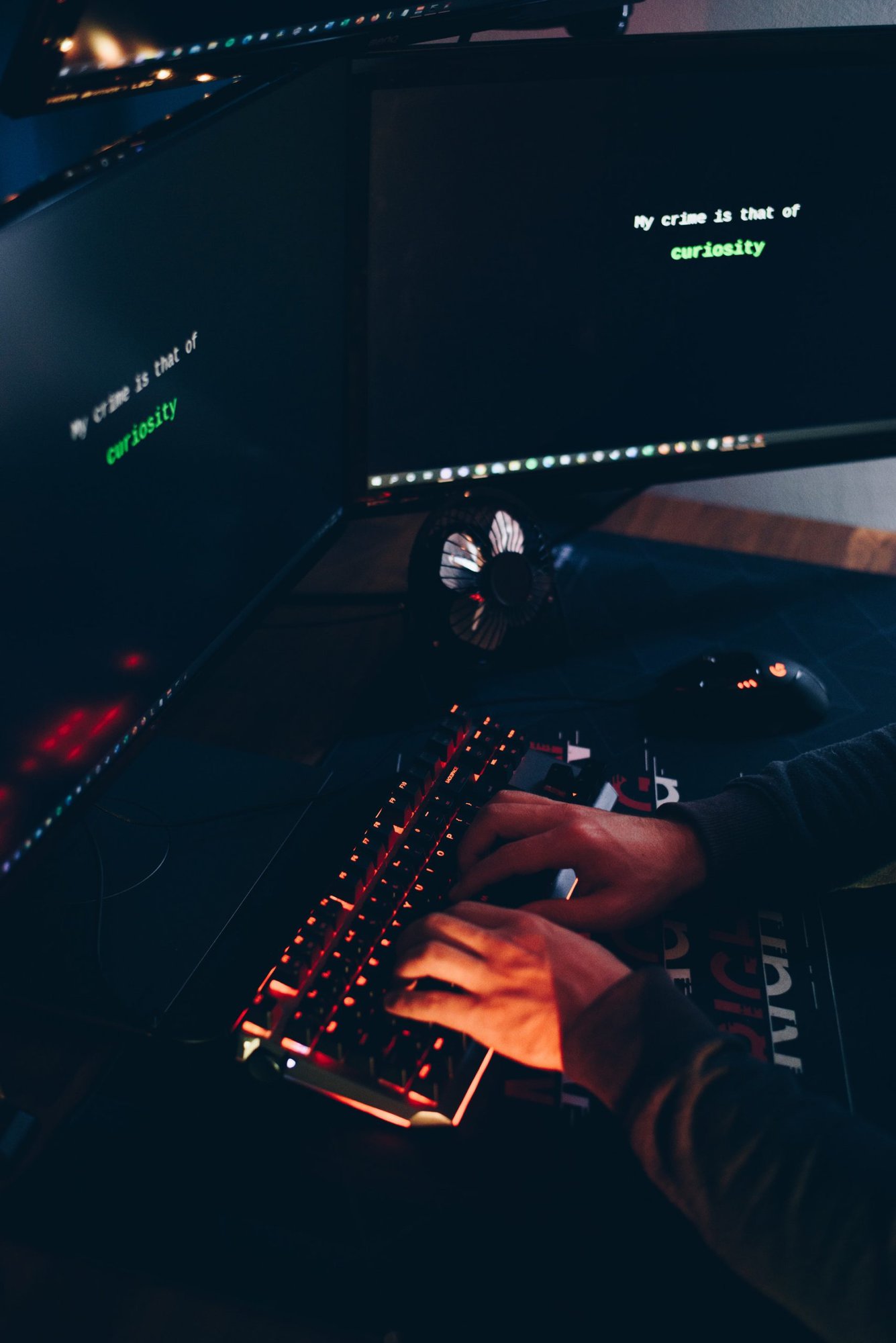
I grew up a fat loser.
I can hear my mother’s gasp, “But you were class president, SGA VP, honors society! You had friends! My boy wasn’t a loser!” Sure, sure mom, but that was all later – in high school, once I’d learned how to crack a joke and could pretend to be a regular human Earthling.
Elementary school was different. Middle school was different. At my school, each grade had just one or two fat kids in it, and every year, I was one of ‘em. Being the fat kid, the constant butt of jokes, is not pleasant, but, you know, people deal with far worse trauma.
My plight was made a bit worse, because I was a ridiculously sensitive kid. Unlike a lot of people who go into engineering, I had no problem reading emotions. I was the opposite, hyper-empathetic. A glance, a tone, a silence held slightly too long and I would feel their emotions wash over me. It wasn’t just peers; adults often left me bathing in an unintended flood of pity and irritation.
My young ego coped in various ways, primarily a strong preference for solitude and a stutter that still comes out occasionally when I get nervous.
I was also fairly precocious, which did not help. This shy fat kid who never tries to make friends and could barely read out loud in class due to an anxious stutter… he’s the one blowing out the curve for everybody else? He’s the worst!
I’m not trying to wallow in self-pity. I had two parents who loved and supported me, in their own ways. I never had to worry about a roof over my head or food on the table (insert fat joke). In many, many ways, I was incredibly fortunate and had a wonderful childhood.
And maybe I wasn’t a total loser; maybe I just felt like one. But I was definitely a nerd.
Growing Up a Nerd
When you get excluded and mocked by the world in your adolescent years, it affects your outlook for the rest of your life. You internalize the everyday trauma of grade school life, e.g. the horrors of gym class and changing in the locker room, and it just never, ever fully leaves you.
You always feel like an outsider.
Anyway, back in the 80s and early 90s, when I was growing up, computers existed, but they weren’t popular. Dial up modems existed, but only super nerds had them. Maybe your friend’s mom had one for work. This was before Quantum became AOL, even before national ISPs were common. I remember my first ISP, DiBBS – started as a local BBS (Di’s BBS) that was exploring this new interconnected network thing.
When I got into computers, they were definitely not cool. I mean, they were incredibly cool to me, but there was little mainstream interest or respect. There wasn’t even all that much money – at least not compared to the popular smart-kid careers in law or medicine or Wall Street, etc. IT was mostly a cost center. Programmers were seen as resources to be managed and exploited, not creative knowledge workers.
I still remember reading the Hacker Manifesto in an ASCII issue of Phrack. It didn’t exactly describe me, but on a deeper level, it was exactly me.
Here’s an excerpt, for the unfamiliar:
“I am a hacker, enter my world... Mine is a world that begins with school... I'm smarter than most of the other kids, this crap they teach us bores me... Damn underachiever. They're all alike. I'm in junior high or high school. I've listened to teachers explain for the fifteenth time how to reduce a fraction. I understand it. "No, Ms. Smith, I didn't show my work. I did it in my head..." Damn kid. Probably copied it. They're all alike. I made a discovery today. I found a computer. Wait a second, this is cool. It does what I want it to. If it makes a mistake, it's because I screwed it up. Not because it doesn't like me... Or feels threatened by me... Or thinks I'm a smart ass... Or doesn't like teaching and shouldn't be here... Damn kid. All he does is play games. They're all alike. And then it happened... a door opened to a world... rushing through the phone line like heroin through an addict's veins, an electronic pulse is sent out, a refuge from the day-to-day incompetencies is sought... a board is found. "This is it... this is where I belong..." I know everyone here... even if I've never met them, never talked to them, may never hear from them again... I know you all... Damn kid. Tying up the phone line again. They're all alike…”
For a nerdy tween in search of a community, that was mind-blowing. I felt seen in a way I never had before, and it set me down a path where I knew I’d always be tooling around on computers, whether for work or for fun.
Rise of the Nerds
Every person has their unique challenges, but I think parts of my story will resonate with a lot of senior leadership in the tech industry, especially those in their 40s and older.
We are often people who got into computers, because we were seeking an escape from some pain in the real world.
That’s the past though. Technology is cool now. Software is eating the world. Tech startups are glamorous. Ivy League graduates are seeking jobs in technology. A career in software has prestige.
So many things I did in my youth that were considered weird and nerdy are now popular. I remember being ridiculed for geeking out about Wheel of Time and fantasy books, and now we have legit cultural critics discussing TV based on Game of Thrones or The Expanse. I was once mocked for planning my entire weekend, months in advance, around the release of Mortal Kombat II on the Genesis. Now there are teams and franchises of professional gamers, Esports have actual clout, rock stars and celebrities discuss video games.
There are probably a dozen other ways my teenage self would be blown away by the rise of nerd culture over the last decade. Suddenly a lot of us old nerds find ourselves in a weird position.
We have authority and power. We are deciding what is popular. We are deciding who gets included and who gets excluded.
This brings us to the point. Finally!
I Don’t Exclude People
The tricky part is that we older nerds are often people with a lot of unconscious privilege.
To have a home computer in the 80s was fairly rare, even a crummy old green screen like I had. It wasn’t until 1990 or so that even 20% of households had a home computer. So that implies a certain amount of economic privilege, which correlates with a lot of other aspects of privilege. Add some gender and racial stereotyping on top of that, and it’s no wonder that such a high percentage of older software nerds are white men, like me. We’re the ones who had the opportunity and encouragement.
And there’s no debating that it has taken us too long to see our own flaws, to see how we accidentally perpetuate unequal access and biased hiring. We’re so used to focusing on how we can fit in that we often don’t think about how we might be keeping others out.
Something as simple as a hiring referral bonus for current employees can be fraught with unintended consequences. A team of mostly white men often has a professional network of mostly white men. It’s obvious when you think about it, but if you’re not seeking guidance from a diverse set of advisors, it’s easy to miss such obvious patterns.
I’ve already confessed my total loser status. I might as well be honest and admit this is something I struggle with as much as anyone.
When I get feedback that I’m not being inclusive enough, a part of me – that nerdy boy who spent weekends hanging out on dialup BBSes – turns around to look for the bully standing behind me.
Surely you can’t be talking to me? I’m a nerd. I’m not the problem. I don’t exclude people.
Wait, do I?
Yes, of course I do – not intentionally but it’s completely natural to get along better with people who share more interests and more cultural reference points. Bias doesn’t always mean overt discrimination. Bias can be sneaky, just feeling more comfortable or a better fit or other vague language that really means: this person feels familiar and similar to me.
Any path forward has to acknowledge that. It doesn’t make us bad people. Everyone has blindspots and subjective preferences that can result in unconscious bias. Pretending we don’t is dishonest and counterproductive. Fortunately, I think most old-guard nerds are realizing this.
This Is Where We Belong
That said, I also understand why a lot of old nerds get defensive about matters of inclusion.
We found this niche where we belonged, we finally belonged! We founded these nerd enclaves and helped build these communities. We’ve seen them rise in popularity and power, and in many ways, that’s wonderful. It has given us comfortable careers, and we get to share these things we love with the broader culture. How awesome is that!
But then people come along and tell us that we’ve been immoral gatekeepers this whole time, that our way of doing things is obsolete, that we don’t belong here anymore.
It rips open those old wounds of being excluded.
However, that’s not really what the younger generation is saying. It sounds that way sometimes, because our dialog is getting caught up in divisive culture wars. But really, they’re just asking for us to open the door a little wider and help others come in, others who’ve been excluded.
Nerd culture and the software community are many things to many people, but the parts I’ve always liked best are the kind parts, the parts that say all are welcome here. Whatever you want to geek out about is cool here. As long as you’re respectful of others, we celebrate your differences.
The good news is we’re seeing opportunity expand and become more equitable – slowly but with noticeable progress in the last decade. Besides the moral imperative, even the most intransigent old-school nerds are starting to see the improved resilience and intellectual refinement that a more diverse team can bring.
We old nerds have finally realized that there is a problem, it happened on our watch, and we need to take an active role in correcting it. In the end, I think we all want to see software development become an inclusive and welcoming environment where people from all backgrounds can crack open an editor and have that feeling: at long last, “This is it… this is where I belong…”
Loved the article? Hated it? Didn’t even read it?
We’d love to hear from you.


